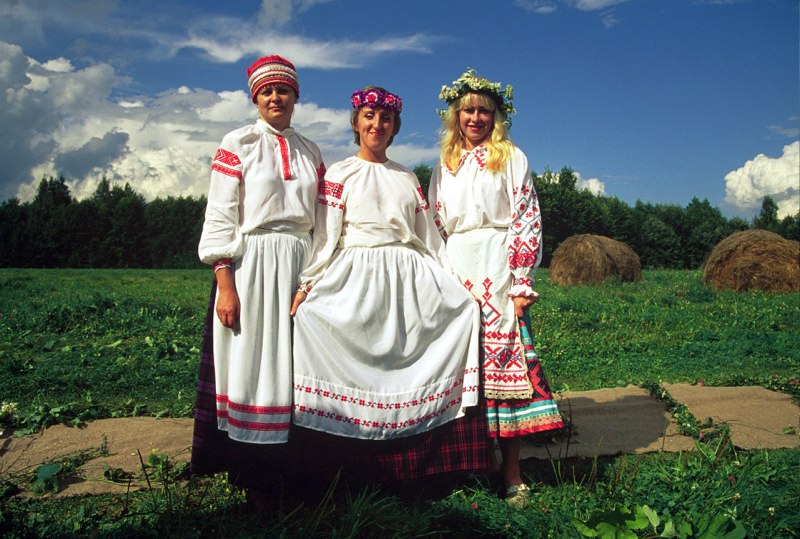Every trip is associated with some smell, taste, color… Belarus smells of wood, herbs drying out in the sun, tea brewed in a samovar with a view out onto a forest of pine, fir and birch. It tastes of eggplant and spicy adjika, which we enjoyed while celebrating the New Year in the Regal Hut, cheese racuchy (pancakes) at Ała’s for breakfast, fish salad covered with grated red beets at Olga’s, soup from a pot on the banks of the Niemen River during a day of whitewater kayaking… The country has a dominating blueness of its lakes and the window frames of its wooden houses, its story is told in poetry and legends, and it’s defined by an ancient Belarussian melody…
text and photos © Dominika Zaręba
Hospitality Belarussian-style
I always come brack from a journey to Belarus with a full stomach, but also with a feeling that what my diet there was healthy, diverse and very ‘home-made’… – Today for breakfast, I’m going to fry up some serniczki, that is pancakes with cottage cheese and jam – Ała Choreń tells us with a big smile on her face. She runs a bed&breakfast in Klaścice, which is nestled in the amazing Rasony Lake District, in the northern part of Belarus. The front porch of a wooden house, brightened up by the June sun, is the place for an afternoon meal. We wait until the tea finishes brewing in the silver samovar… this is “slow food” pure and simple! When on a trip in these areas, it really pays to stop at one of the local b&b’s to get an authentic feel for the Belarussian village. There are over 400 such b&b’s – which are known in Belarussian as “vyoskova sediba” and in Russian as “sel’ska usad’ba”. There’s much more to these places than just a place to stay overnight or have a sumptuous meal. You can relax in the sauna (the traditional “Russian banya”), rent a kayak, bike or cross-country skis, learn Belarussian songs or local arts & crafts, which the hosts specialize in, but above all, you can get an appreciation and feel of what the “Belarussian soul” really stands for.
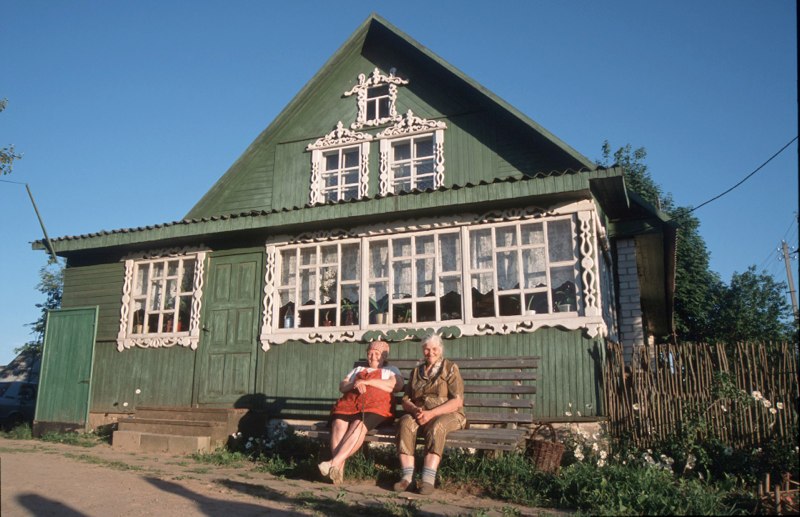
New Year’s Eve at the “Regal hut”, Aleksandra and Wera Kroll’s B&B in the village of Zaborze in the Rasony Lake District was a night to remember. Outside, it’s snowing, next to the fireplace is Timur and Sasha playing Belarussian and Russian melodies on the guitar, while the rest of the host family and guests are making dishes to ring in the New Year. Buterbrody, or sandwiches with caviar, eggplants dressed in tomatoes, marinated porcini mushrooms, draniki or potato pancakes with mushrooms, kolduny (dumplings) with meat and mushrooms, adjika – a spicy sauce with garlic, paprika, carrot and apple, Russian champagne… The table was groaning under the weight of all these yummy foods, and Wera kept adding some other salads and fruit. In a moment we’re supposed to go to the Russian banya on the lakeside, which has been constructed inside a dugout, and afterwards dip into the lake via an ice hole…
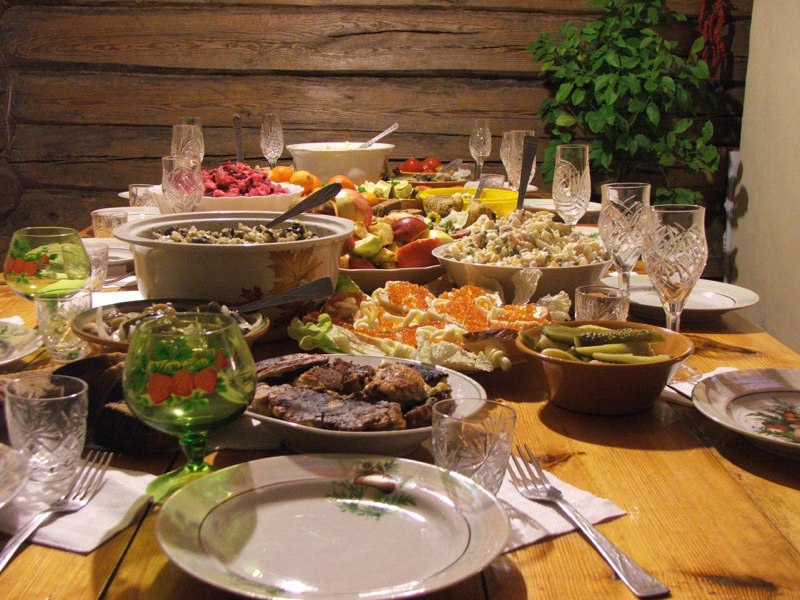
Poetry with taste
Belarus is a land made for ecotourism. The Belarussian village has stayed practically unchanged over the past hundred years. More than half of the villages are hamlets with no more than 50 residents. A particularly impressive feature is the traditional wooden architecture, painted window shutters and fences, a rich and authentic folklore, but foremost – Slavic hospitality and Belarussian openness. When travelling up and down Belarus, what impresses itself most in your memory are the people, who are open to sharing their life-stories, which are usually sprinkled with quotations from literature, proverbs, legends and national poetry. I remember how eagerly I listened to tales from the Lepel region. Viktor quoted Aleksandr Pushkin, Olga told the legend of the magic tree, while Valery sang an old Belarussian song about roses. They all agreed that Belarussians are a soulful people and hold a special energy within them. Indeed, these ‘local energies’ are apparently everywhere – almost every tree, flower, house has a story to tell…
– We, Belarussians, despite difficult living conditions, are a cheerful people, aware of our history, identity and heritage – explains Olga Machanenko, who is active in cultural activities and the theater, and in the Lepel region is involved in promoting ancient traditions and the Belarussian language. One winter’s eve, Olga Machanenko, Viktor Trufanov and Valery Tuhta took us by sled to the forest to show us a nearby “energetic place”. When we got there, they hung lanterns from the trees, lit up a fire and read us a local legend. It’s hard to describe the magic of the moment. On a frosty winter evening, we’re listening to poetry by the light of oil lanterns and a full moon, with a bit of homemade samogon (moonshine) to keep us warm… This can only happen in Belarus…
Thanks to Olga I was fortunate to reach the village of Anoshki. On a beautiful winter, sunny day on the doorstep of a wooden hut with windows painted over in blue, we received a warm greeting from Walentyna Krickaya. All afternoon long we sang and danced in her home and outside on the street, several generations partook – the youngest was 5, the oldest 90. In Anoshki I for the first time got to experience this elusive quality of being Belarussian – a Slavic energy combined with a sense of longing and the transience of the moment.
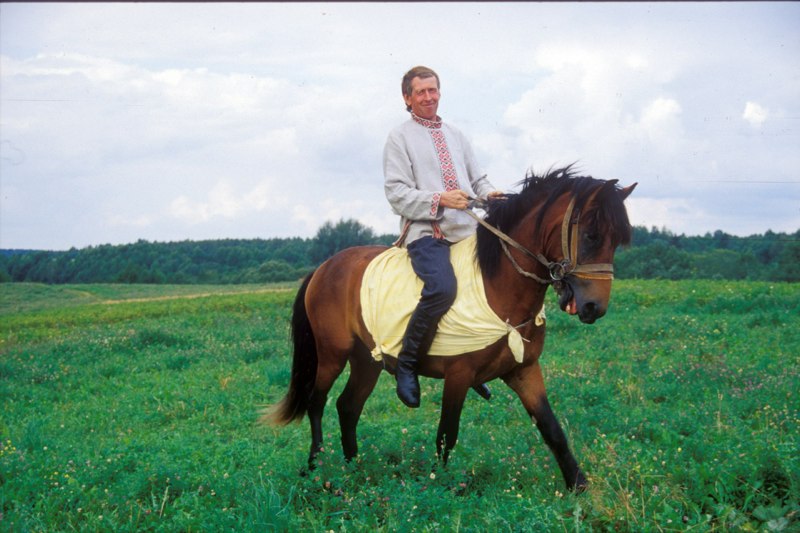
Ancient Slavic roots
Contemporary Belarussians very often harken back to ancient Slavic beliefs and traditions, the cult of nature and the celebration of the sacredness of nature. Many pre-Christian legends, mythologies, festivities and have survived to this day in the traditions of the local communities and stand out as a defining factor of an authentic and vibrant folk culture. Villages celebrate ancient Slavic festivities connected with the cycle of natural life from spring to winter, such as the Day of Jaryla – marking the spring solstice, The Night of Kupala or the Day of Koliada – the winter solstice. You can come across Belarussians who declare their religion to be Rodnovery, or Slavic Neopaganism, a new form of ethnic religion which draws on ancient Slavic beliefs. I’ll never forget the famous wedding celebration in the old Slavic style, which Olga Machanenko and Wiktor Trufanow organized on a spacious meadow in the village of Stare Ladno. A group of cyclists from Holland, Belgium, France and the UK – who were taking part in an international bicycle tour – came as guests to the wedding. The Dutch-French couple dreamed up an ancient wedding ceremony in Belarus with linen costumes and wreaths. At the beginning of the ceremony, the betrothed went “for good luck” through a flower-decked pathway on a carpet made of flax. The groom carried his chosen one while riding a horse, the newlyweds then hugged one another and declared their love for one another under an old oak tree, which was to give them strength and health. Afterwards, they ‘cleansed themselves’ in a bonfire-lit circle so their sorrows could disappear with the smoke and only good and happy thoughts remain. Apart from everything else, the traditional Belarussian music, dances and 12-course Belarussian style feast made this into a truly amazing spectacle, right in the heart of nature, on the shore of Lukszyna Lake… The ceremony was topped off by a rainbow, which appeared in the August sky, stretching right over the entire meadow, the blue lake and the wedding guests.
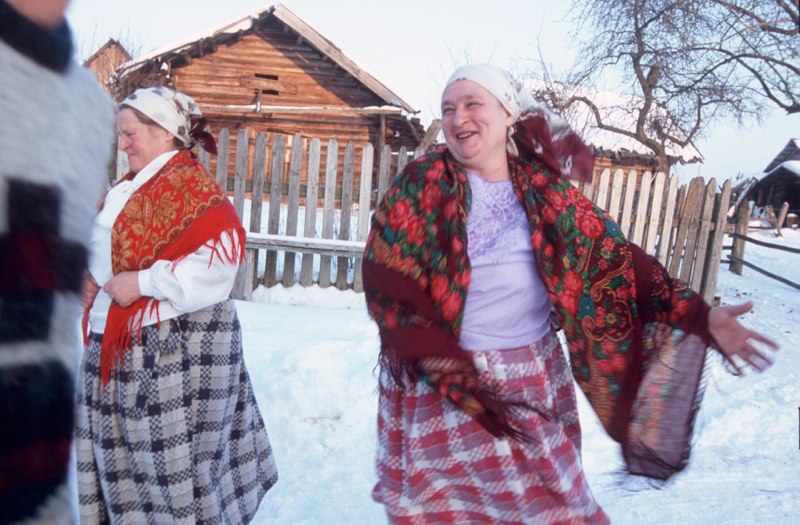
Meals straight from the pot and music on the Niemen River
Summer makes me think of sweet tomatoes and cucumbers from a local garden, served with white cheese and chives and black sourdough rye bread. These are the tastes I remember from the time we went rafting on the Niemen River. Breakfast in the middle of the river, merry company singing songs in the morning hours, all around sand banks and pine woods. In fact, the entire three days out we’ve been constantly eating, enjoying the August sun, nature, baths in the Niemen. – Today, we’re going to set up camp on this clearing – Igor Marcul, our captain, tells us. – Get ready for a Russian banya in the tent by the river’s edge and soup straight from the pot! Going down the Niemen by raft in the Lida region is an unforgettable ecotourist adventure. The raft, which fits 12 people, was designed and constructed by Igor Marcul from Mińsk and Jurii Ogarko from Dokudow, who is running a B&B with his wife here. – The trip can take anywhere between two and twelve days – explains Yurii. – For longer sections we take the Berezyna River and then we float down the Niemen. Rafting expeditions go on regularly from June all the way to August; we stay overnight in tents, have our meals outdoors at designated campsites – he adds. I now know that tonight we’re going to get our share of beautiful sung Belarussian, Russian and Polish songs. Then I remember that Żmicer Wajciuszkiewicz – one of the best known contemporary musicians and singers, an artist who’s prohibiting from officially performing in his own country – does his creative work here by the Niemen River. Whenever I’m travelling through Belarus, I catch myself humming his songs. Between East and West Między Wschodem a Zachodem[to nie bylo w formie zdania, bo nie ma w wersji PL kropke, wiec nie wiem czy to jest tytul piosenki, czy co?] On such trips you rarely talk politics. This is too gloomy a subject. Here in the countryside, one has to live as one sees fit, quietly, calmly, day by day, and try to enjoy the moment for what it is. Belarussians have a specific perspective on their nation and their national habits. “Why are you an independent Belarussian Republic? – Because everything is independent of us – so goes what you might call a national joke… Belarussians have learned to live according to their own rules, locally, outside and beyond the reach of the state and its ‘tsar’. Their land was always crisscrossed by armies and where innumerable battles and wars took place. The nation existed somewhere between East and West. For many centuries it was held by this or that power – whether Russia, Lithuania, Poland or the Soviet Union… It was always dependent on someone, it never had the revolutionary traditions of Poland or the Ukraine. The people had to learn how to live and survive – they lived somewhere ‘on the side’, in their village, with their neighbors, in their homes, with their families. The daily remedy was to meet, sing together, celebrate traditional holidays and read. “They say, that Belarussians either drink or read…” – jokes Lena Vetrova, promoter of ecotourism from the Belarussian „Country Escape” Association – Our contacts with Poland are very important for us. We’re neighbors and yet we know so little about one another. You really can have a great time in Belarus, at one with nature, close to the people who live here, and get familiar with our rich cultural treasures. – she adds. The „Belarussian soul” is a phenomenon hard to describe, but is the quintessence of the genius loci of this land. To understand and appreciate it, one has to come and see it for oneself, taste it, listen to it and let oneself be delighted. As simple as that.
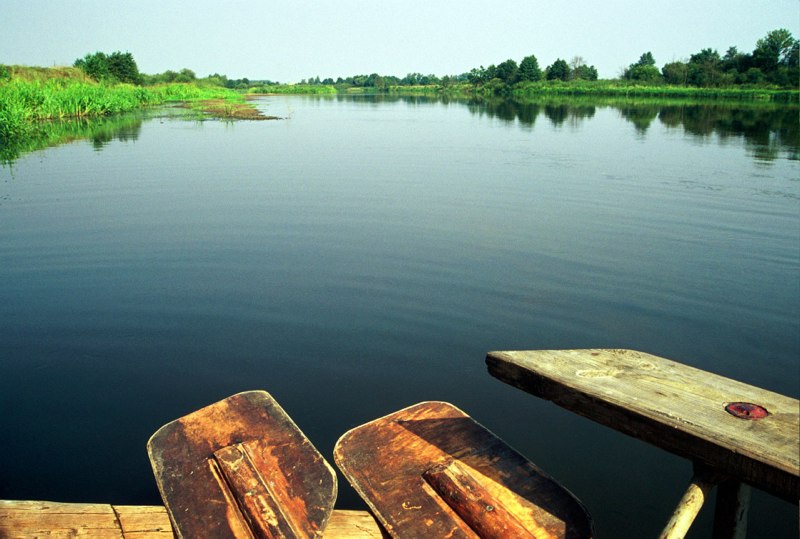
Translation into English: Piotr Szmigielski

